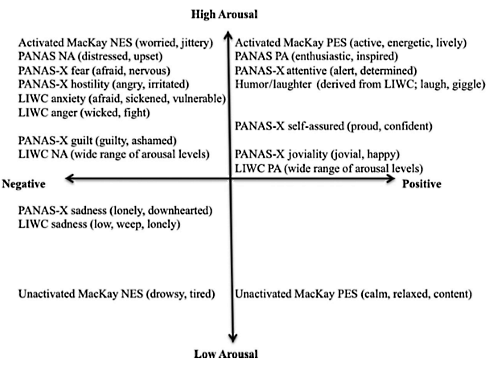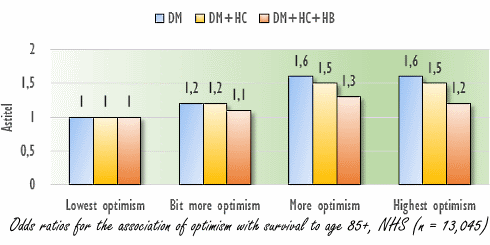|
Definition: "An ergogenic aid is any substance or phenomenon that enhances performance "
|
|
||||||||
11.05.2013 |
|
|
Your word use reveals the age you are likely to reach
The series A History of Psychology in Autobiography, in which a number of influential psychologists wrote a short autobiography, was published in the sixties. Two American psychologists from this era discovered that they could predict from their colleagues' word use how long they would live. The more often the psychologists used words with a positive emotional overtone, the older they lived to be.
Positivity - longevity
In 2001 psychologists at the University of Kentucky published an analysis of 180 life descriptions of Catholic nuns, written decades earlier when the nuns were 22 years old. [J Pers Soc Psychol. 2001 May;80(5):804-13.] When the researchers found out how old the nuns had lived to be, it turned out that the nuns who had used more words with positive emotional overtones were less in a hurry to shuffle off this mortal coil.
Study
The researchers first looked for words with a 'high activated positive affect': words like happy, active, energetic, lively, enthusiastic. Then they looked for words with an 'unactivated positive affect', such as calm, relaxed and content.
The researchers also distinguished between high activated and unactivated for words with negative emotional overtones. They distinguished between words with a 'high activated negative affect', such as worried, jittery, distressed and upset, and words with an 'unactivated negative affect', such as sad, lonely, downhearted and hopeless.
The researchers counted the number of emotionally charged words in the autobiographies and then looked at the age the writers had reached, from which they were able to construct the figure shown below.
Results
When the researchers looked at which type of words with a high activated positive affect had the strongest correlation with a longer lifespan, the words that had something to do with humour were the ones that were most noticeable. Psychologists who had used many humorous words in their autobiography lived six years longer than psychologists who had used few humorous words.
The least powerful words with a high activated positive affect were self-assurance words. Use of these words only extended lifespan by three years.
Explanation
"These changes may improve health through their influences on immune and cardiovascular function and may also aid in buffering physiological stress responses."
Source:
More: Archives:
|
|
|||||||||||||||








